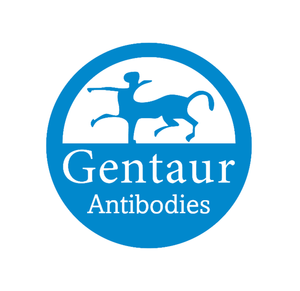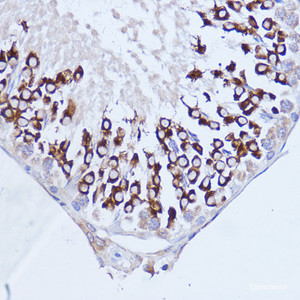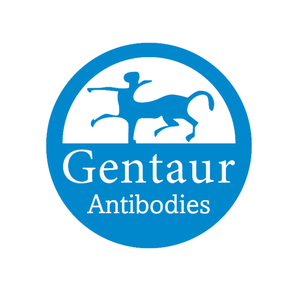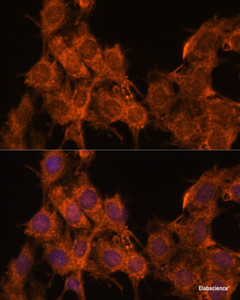INHBA Polyclonal Antibody | G-AB-02709
Gentaur Antibodies
- SKU:
- G-AB-02709
- Availability:
- 3 to 5 Working Days
- Host:
- Rabbit
- Reactivity:
- Human, Mouse, Rat
INHBA Polyclonal Antibody | G-AB-02709 | Gentaur Antibodies
Overview: The inhibin beta A subunit joins the alpha subunit to form a pituitary FSH secretion inhibitor. Inhibin has been shown to regulate gonadal stromal cell proliferation negatively and to have tumor-suppressor activity. In addition, serum levels of inhibin have been shown to reflect the size of granulosa-cell tumors and can therefore be used as a marker for primary as well as recurrent disease. Because expression in gonadal and various extragonadal tissues may vary severalfold in a tissue-specific fashion, it is proposed that inhibin may be both a growth/differentiation factor and a hormone. Furthermore, the beta A subunit forms a homodimer, activin A, and also joins with a beta B subunit to form a heterodimer, activin AB, both of which stimulate FSH secretion. Finally, it has been shown that the beta A subunit mRNA is identical to the erythroid differentiation factor subunit mRNA and that only one gene for this mRNA exists in the human genome.
Category Type: Polyclonal Antibody
Research Areas: Cancer, Signal Transduction
Synonyms: Activin beta-A chain, EDF, Erythroid differentiation factor, Erythroid differentiation protein, Follicle stimulating hormone releasing protein, FRP, FSH releasing protein, INHBA, INHBA, Inhibin beta A chain, Inhibin beta A subunit, Inhibin, beta 1, Inhibin, beta A (activin A, activin AB alpha polypeptide)
Reactivity: Human, Mouse, Rat
Host: Rabbit
Isotype: IgG
Gene ID:
Accession #: NP_002183
Clonality: Polyclonal
Immunogen: Synthetic peptide of human INHBA
Clone #:
Conjugation: Unconjugated
Swissprot: P08476
Santa Cruz: sc-6308/sc-50288
Calculated MW: 47 kDa
Observed MW:
Concentration: 0.6 mg/mL
Buffer: PBS with 0.05% sodium azide and 50% glycerol, PH7.4
Purification method: Affinity purification
Application: WB, ELISA
Dilution: WB 1:1000-1:2000
Storage: Store at -20°C. Avoid freeze / thaw cycles.












